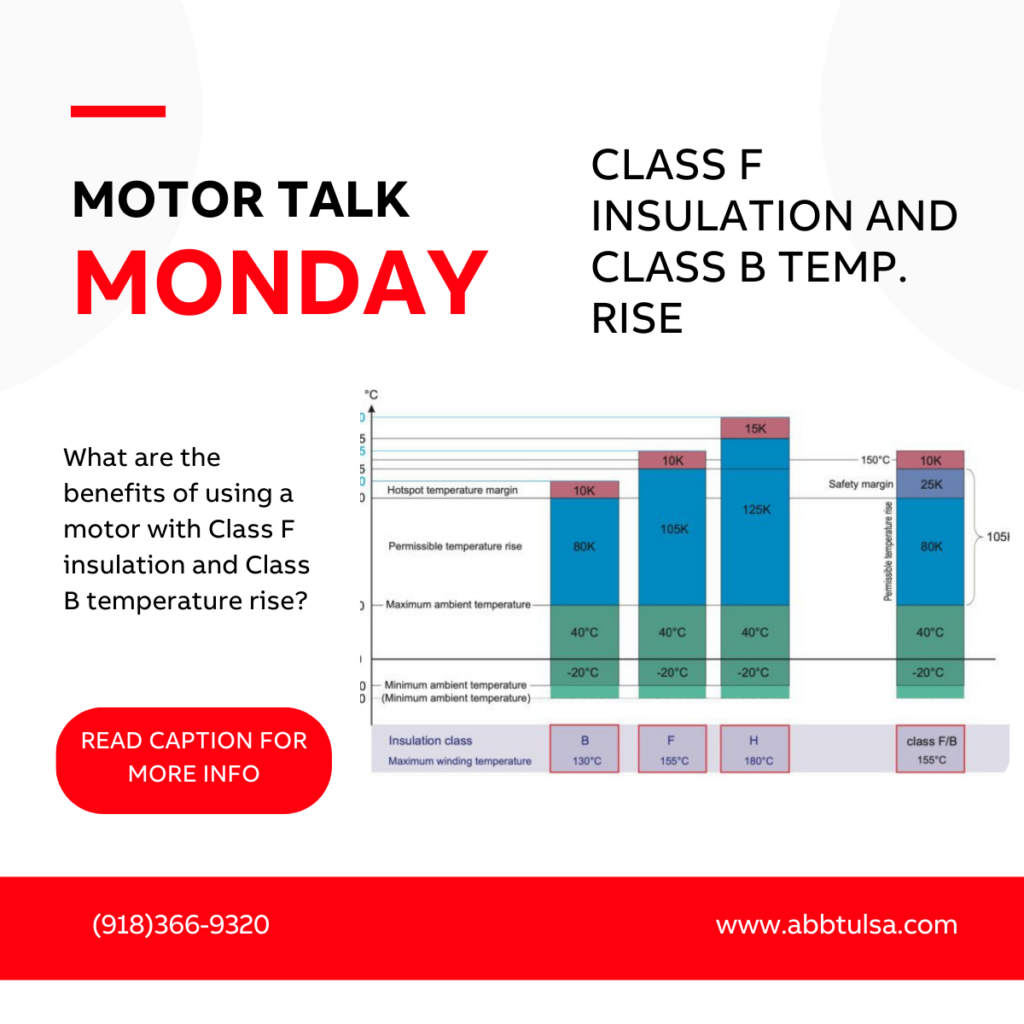
#MotorTalkMonday – what are the benefits of using a motor with Class F insulation and Class B temperature rise?
First, let’s explore what the insulation and temperature rise classes mean. Class F insulation is rated to withstand temperatures up to 155°C. This means the motor’s winding insulation can handle higher thermal stress compared to lower classes, which makes it ideal for running in demanding environments.
The temperature rise indicates the motor’s typical temperature increase above ambient temperature during normal operation. A Class B temperature rise indicates the motor operates with a maximum allowable temperature rise of 80°C (assumes a 40°C ambient temperature).
The difference between the Class B rise and Class F insulation’s limit provides a thermal safety margin of 25°C, extending insulation life and improving reliability under the standard operating conditions. This allows the motor to handle occasional overloads or extreme ambient conditions without risking insulation damage. Operating at a lower temperature increases the motor’s efficiency and reduces wear on the insulation, bearings, and other components, contributing to longer-term reliability.
Interested in learning more? Click here!


